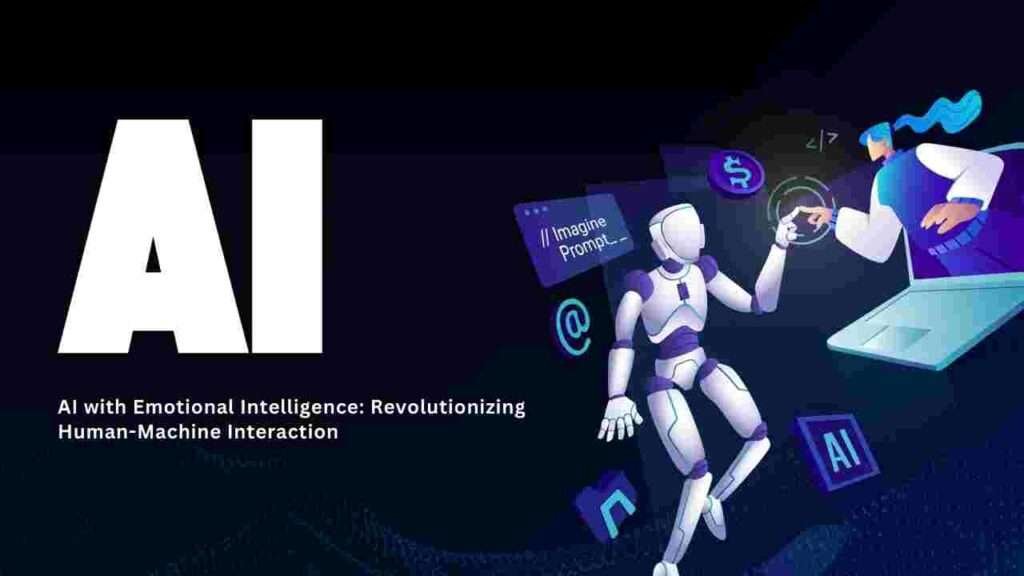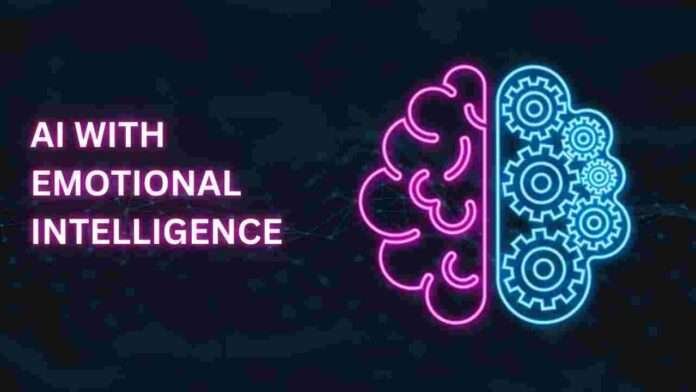Artificial Intelligence (AI) has made tremendous strides in recent years, moving beyond basic automation and problem-solving to a more human-like approach. The next frontier is AI with emotional intelligence (EI), where machines not only perform tasks but also understand and respond to human emotions. This innovative development is revolutionizing industries like healthcare, customer service, and education by fostering deeper connections between humans and technology.
Thank you for reading this post, don't forget to subscribe!What is AI with Emotional Intelligence?
AI with emotional intelligence refers to systems that can recognize, interpret, and respond to human emotions. This is achieved through various methods such as facial recognition, tone of voice analysis, and natural language processing. By combining these abilities, emotionally intelligent AI can enhance human-machine interaction by responding empathetically to users’ emotional states.
Why is Emotional Intelligence Important for AI?
Emotional intelligence is crucial for AI because it enables machines to interact with humans in a more natural and personalized way. By understanding emotions, AI can:
- Improve customer service by detecting frustration or satisfaction and adapting responses accordingly.
- Enhance mental health treatments by recognizing emotional cues and providing tailored support.
- Improve leadership and HR tools by assessing employee sentiment and offering feedback.
- Assist educators in better understanding student engagement and emotional well-being.

Applications of AI with Emotional Intelligence
- Healthcare: AI can support mental health professionals by analyzing emotional data from patients and offering preliminary assessments or emotional support between sessions.
- Customer Service: Virtual assistants equipped with emotional intelligence can gauge customer frustration and escalate issues to human representatives when necessary.
- Marketing: Emotionally intelligent AI can analyze customer sentiment and create personalized marketing campaigns.
- Human Resources: AI tools are helping employers assess employee satisfaction, improving workplace morale and retention.
Challenges of Implementing AI with Emotional Intelligence
While the potential of emotionally intelligent AI is vast, there are challenges to overcome:
- Privacy Concerns: Emotional data, such as facial expressions or tone of voice, raises concerns about data privacy and the ethical use of personal information.
- Complexity of Emotions: Human emotions are complex and subjective, making it difficult for AI to interpret them accurately in all situations.
- Bias: AI systems can inherit biases from the data they are trained on, leading to incorrect emotional assessments or inappropriate responses.
FAQs about AI with Emotional Intelligence
1. How does AI recognize emotions?
AI uses technologies like facial recognition, voice analysis, and natural language processing to detect emotional cues such as tone, body language, and word choice.
2. Can AI replace human empathy?
No, AI can mimic empathy to a certain extent but cannot truly understand or feel emotions. It’s designed to enhance human interactions, not replace human empathy.
3. Is AI with emotional intelligence safe?
Like all AI technologies, emotionally intelligent AI must be developed and regulated carefully to protect user privacy and prevent misuse of sensitive emotional data.
4. What industries benefit most from emotionally intelligent AI?
Healthcare, customer service, education, marketing, and human resources are among the top industries that benefit from AI with emotional intelligence.
5. Will AI with emotional intelligence affect jobs?
AI will change the nature of some jobs by automating certain tasks, but it will also create new opportunities, especially in fields that require emotional insight and human oversight.
Conclusion
AI with emotional intelligence represents a significant leap forward in how machines interact with humans. By bridging the gap between logical processing and emotional understanding, this technology is poised to improve numerous sectors by creating more empathetic, responsive, and personalized experiences.
Read More – Can AI Replace Software Engineers?



